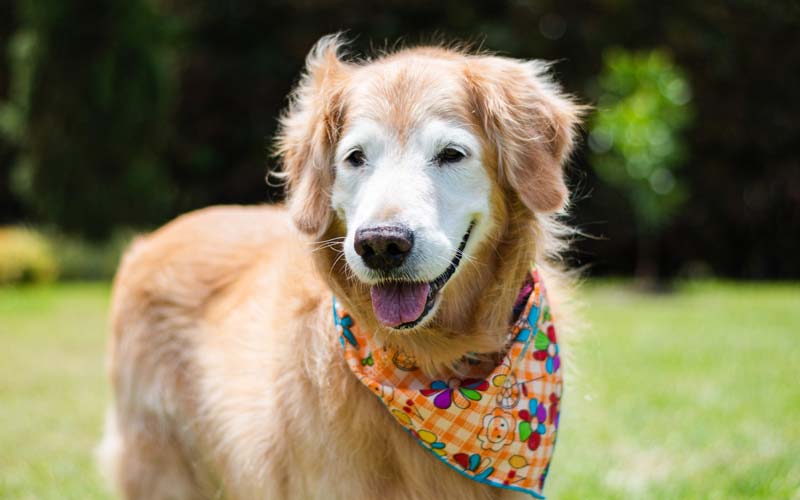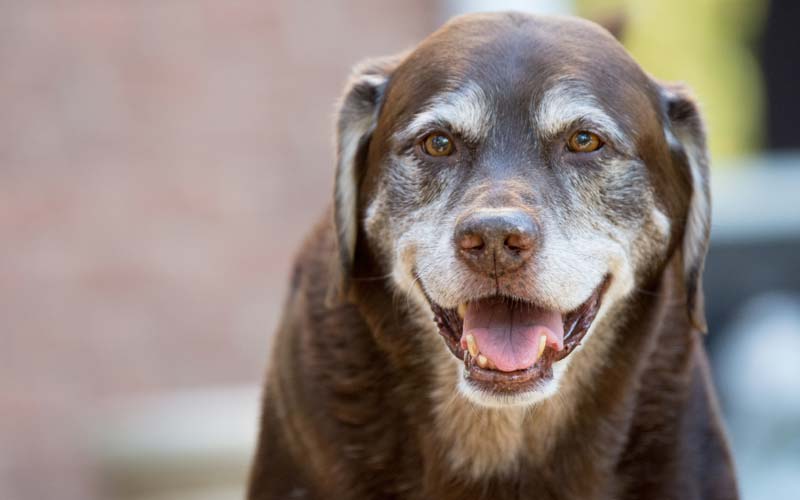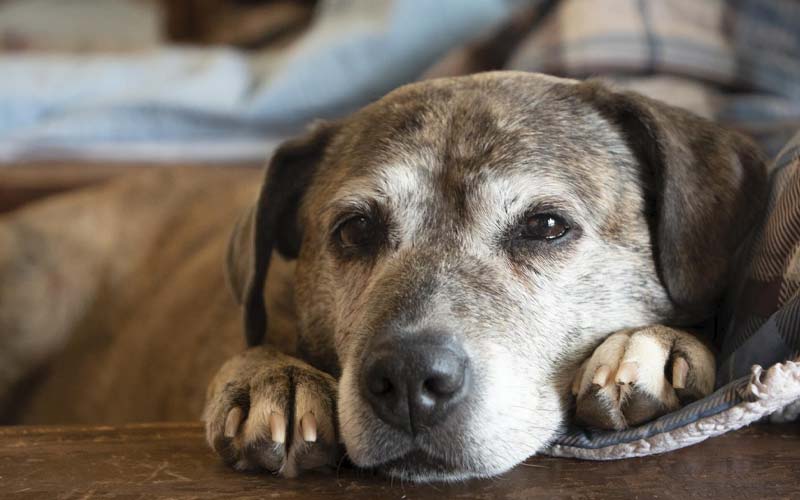Bringing a dog into your home is a life-changing decision, filled with excitement, anticipation, and plenty of questions. While many people naturally gravitate toward playful puppies, there’s an often-overlooked group of dogs waiting for their chance at a loving home: senior dogs. These older companions bring a unique set of benefits to the table, offering calm, steady companionship and a wealth of gratitude for being given a second chance.

Adopting a senior dog not only transforms their lives but can also enrich yours in profound ways. These dogs typically have well-established temperaments, making it easier to find a personality that aligns with your lifestyle. Whether you’re a first-time pet owner, a family with young children, or someone seeking a low-energy companion, senior dogs can seamlessly integrate into your life.
This article will explore the many reasons why adopting a senior dog might be the perfect choice for you, address common concerns, and provide practical advice to ensure your new furry friend thrives in their forever home. If you’ve ever wondered whether an older dog could be the right fit, read on—you might just find your perfect match waiting at a local shelter.
1. Why Choose a Senior Dog?
Adopting a senior dog comes with its own set of rewarding benefits, especially for those seeking a calm and steady companion. Unlike puppies, who require significant time and energy to train and manage, senior dogs bring maturity, experience, and a touch of wisdom to the relationship. Here’s why they might be the perfect fit for your home.
A. Temperament: Calm and Easygoing
Senior dogs are often celebrated for their established, low-energy temperaments. By the time they reach their golden years, their rambunctious puppy days are far behind them. This calm demeanor makes them ideal for quiet households, whether you’re a retiree, a busy professional seeking a peaceful companion, or a family with young children.
Unlike young dogs that require constant supervision and training, senior dogs are content with shorter walks, relaxed evenings, and a comfortable spot to nap. This predictable behavior provides a stress-free experience for adopters, particularly those who don’t have the time or energy to meet the demands of a high-energy pet.
B. Life Skills: Pre-Trained and Experienced
One of the most practical advantages of adopting a senior dog is their existing knowledge and training. Many senior dogs come to their new homes already house-trained, leash-trained, and familiar with basic commands like “sit” or “stay.” This drastically reduces the effort required to integrate them into your daily routine.
Additionally, senior dogs are more likely to have experience living in a home environment. They understand household rules, such as not chewing on furniture or jumping on guests, which makes the transition smoother for everyone involved.
C. Bonding: A Deep and Gratifying Connection
There’s something uniquely special about the bond that forms with a senior dog. These older pets often seem to recognize the kindness of being given a second chance, responding with loyalty, love, and gratitude. Adopters frequently describe the relationship as profound, noting the deep connection that develops as their senior dog settles into their forever home.
This bond isn’t just about companionship—it’s also about mutual understanding. Senior dogs tend to be more attuned to their adopter’s emotions and routines, making them intuitive and loving partners. For those looking to build a meaningful relationship with a pet, a senior dog offers unmatched emotional rewards.
Adopting a senior dog isn’t just about giving them a new lease on life; it’s about welcoming a companion who will enrich your days with their wisdom, love, and calm presence. Whether you’re seeking a low-maintenance friend or a partner for relaxed walks and quiet evenings, senior dogs prove time and time again that age is just a number.

2. Common Misconceptions About Senior Dogs
When considering adopting a senior dog, many people are held back by common misconceptions that unfairly cast older dogs in a negative light. These myths often prevent wonderful, deserving pets from finding their forever homes. Let’s dispel these misconceptions with facts and real-life examples that showcase the incredible potential of senior dogs.
A. “Senior Means Sick”
One of the most pervasive myths about senior dogs is that they are inherently unhealthy and come with a laundry list of medical issues. While older dogs may face age-related conditions, such as arthritis or reduced vision, this doesn’t mean they are incapable of leading active, fulfilling lives.
Many senior dogs in shelters and rescues receive thorough veterinary evaluations, vaccinations, and care before adoption. Additionally, countless older dogs remain healthy well into their golden years, enjoying long walks, playful interactions, and even athletic activities like agility training. With routine veterinary checkups, a balanced diet, and regular exercise, senior dogs can thrive just as much as their younger counterparts.
B. “Short Lifespan”
Another concern prospective adopters have is that senior dogs won’t be around for very long. While it’s true that senior dogs may have fewer years ahead of them compared to puppies, focusing solely on lifespan overlooks the incredible quality of time you can share together.
Senior dogs often come with an unparalleled capacity for gratitude and love, creating a bond that is both deep and meaningful. The time spent with a senior dog can be some of the most rewarding of your life, as these older companions tend to form strong, loving connections with their adopters. Instead of measuring their value in years, consider the joy, companionship, and unconditional love they bring to every day.
C. “They Can’t Learn New Tricks”
The saying “You can’t teach an old dog new tricks” couldn’t be further from the truth. Senior dogs are perfectly capable of learning new commands, routines, and even fun tricks. In fact, their maturity and focus often make them more receptive to training than energetic puppies who may have shorter attention spans.
There are countless stories of senior dogs excelling in training classes, adapting to new environments, and even mastering complex commands. Positive reinforcement, consistency, and patience are all it takes to help an older dog learn and thrive in their new home. Whether it’s teaching them a new skill or introducing them to a new routine, senior dogs are eager and capable learners.
By addressing these misconceptions, we can shed light on the true nature of senior dogs: resilient, adaptable, and full of life. Adopting an older dog isn’t a compromise—it’s an opportunity to experience some of the most rewarding moments of pet ownership. Senior dogs have so much to offer; all they need is someone willing to see past the myths and welcome them home.

3. The Practical Benefits of Adopting a Senior Dog
Adopting a senior dog isn’t just an act of compassion—it’s also a practical choice that can make pet ownership more straightforward and rewarding. Senior dogs come with built-in advantages that simplify the process of welcoming them into your home and adapting to their needs.
A. Easier Transition
Senior dogs often have a calm and composed demeanor, making the transition to a new home much smoother than with a high-energy puppy. These older companions tend to be less disruptive and more adaptable to household routines, whether that means relaxing quietly while you work from home or taking leisurely strolls in the evening.
For families or individuals with busy schedules, a senior dog’s lower demand for constant supervision and exercise can be a perfect match. Their gentle nature also makes them ideal for homes with children or other pets, as they are less likely to engage in rough play or high-energy antics.
B. Predictable Behavior
One of the significant advantages of adopting a senior dog is that you know what you’re getting. Unlike puppies, whose size, temperament, and needs can be unpredictable as they grow, senior dogs have well-established personalities. You can choose a dog whose energy level, sociability, and behavior align with your lifestyle from the start.
Additionally, senior dogs come with no surprises when it comes to their size. Whether you’re looking for a small dog to fit comfortably in an apartment or a medium-sized companion for your home, a senior dog’s physical characteristics are fully developed, helping you make an informed decision.
C. Cost Savings
While senior dogs may occasionally require medical care for age-related conditions, their overall costs can still be lower than raising a puppy. Puppies demand significant investment in training classes, housebreaking supplies, and replacing chewed-up belongings. In contrast, senior dogs are often already house-trained and familiar with basic commands, saving you time, effort, and money on professional training or intensive supervision.
Moreover, senior dogs typically have lower energy levels, reducing expenses on things like high-energy dog food or extensive exercise equipment. Their gentle nature also minimizes the likelihood of damage to your home, such as chewed furniture or scratched floors, further easing the financial burden of pet ownership.
From their calm presence to their predictability and cost-effectiveness, senior dogs offer practical advantages that make them an excellent choice for adopters seeking a seamless integration into their lives. By opting for a senior dog, you not only gain a devoted companion but also enjoy the ease and peace of mind that comes with their maturity and experience.

4. Preparing Your Home for a Senior Dog
Welcoming a senior dog into your home is a heartwarming decision, and setting up the right environment ensures their comfort and well-being from the start. Senior dogs have unique needs that require thoughtful adjustments to your living space and daily routine. Here’s how to create a home that’s as inviting as it is practical for your new companion.
A. Creating a Comfortable Space
Older dogs often experience age-related physical changes, such as joint stiffness or arthritis, which makes comfort a top priority. Provide them with soft, supportive bedding to cushion their joints and relieve pressure points. Orthopedic dog beds are an excellent choice, as they’re specifically designed to offer the support senior dogs need.
Place their sleeping area in a quiet, easily accessible spot free from drafts or excessive noise. If your home has stairs, consider setting up their space on the ground floor to minimize the strain of climbing. Additionally, ensure their food and water bowls are within easy reach, perhaps using elevated feeders to reduce the need for bending down.
B. Adjusting Your Schedule
Senior dogs thrive on routine, which helps them feel secure and reduces stress. Establish a consistent schedule for feeding, walks, and bathroom breaks. Older dogs may require more frequent, shorter walks due to reduced stamina, so tailor their exercise routine to match their energy levels.
Routine vet visits are also essential to monitor their health and address any age-related concerns early. Create a calendar to keep track of these appointments, along with reminders for administering any medications or supplements they may need. Consistency in care fosters a sense of stability and ensures your senior dog remains healthy and happy.
C. Health Care Essentials
Caring for a senior dog often involves meeting their specific health needs. Regular veterinary checkups are critical for detecting and managing age-related conditions like arthritis, dental disease, or vision loss. Discuss with your veterinarian the best diet for your dog’s age, weight, and overall health.
Specialized senior dog food is typically formulated with lower calories and higher fiber to support a slower metabolism and digestive health. Supplements like glucosamine and omega-3 fatty acids can also be beneficial for joint health and mobility. Ensure your senior dog has access to fresh water at all times, as maintaining hydration is particularly important for older dogs.
By preparing your home thoughtfully, establishing a predictable routine, and staying proactive with health care, you can provide a safe and nurturing environment for your senior dog. These small adjustments go a long way in ensuring their golden years are filled with comfort, happiness, and love.

5. Real Stories of Senior Dog Adopters
The decision to adopt a senior dog is often life-changing, and real stories from those who have opened their homes to older pets serve as a powerful reminder of the incredible bond that can form. These stories illustrate how senior dogs not only fit seamlessly into their new homes but also bring unexpected joy, companionship, and comfort. Here are two heartwarming examples of how adopting a senior dog can be an enriching experience.
Case Study 1: The Thompson Family and Their Senior Rescue, Max
The Thompson family, consisting of two parents and two young children, had always wanted a dog but knew they needed one that would be calm and gentle around their kids. They initially considered adopting a puppy but quickly realized that a more energetic dog might not be the best fit for their family’s busy lifestyle.
After visiting their local shelter, they met Max, a 9-year-old Golden Retriever. Max had been surrendered by his previous owner due to moving and no longer having the space for him. Despite his age, Max had a calm, gentle demeanor, and he immediately bonded with the children, following them around the yard and enjoying their affection.
The Thompsons decided to adopt him, and the transition was smooth. Max adapted quickly to his new home, happily joining the family on short walks, napping beside the kids during movie nights, and greeting everyone with a wagging tail. What the Thompsons didn’t expect was how Max’s presence brought a sense of calm to the entire household. His steadiness and loving nature created a peaceful environment, providing emotional support for the children and the parents alike.
Max has now been with the Thompsons for two years, and his companionship has brought them all immeasurable happiness. They’ve shared quiet mornings with him by their side and are grateful for the extra years of joy he’s given them. They feel they couldn’t have asked for a better family dog, and adopting Max was one of the best decisions they ever made.
Case Study 2: Sarah’s First Dog, Rosie
Sarah, a young professional who had always wanted a dog but lacked experience with pets, was initially nervous about adopting one. She was unsure how she would manage the responsibility and was particularly concerned about the high-energy demands of a puppy. After discussing her options with friends and researching online, she came across the idea of adopting a senior dog.
She found Rosie, a 7-year-old Beagle mix, at a local shelter. Rosie had spent much of her life in foster care after being found as a stray, and although she had some health challenges, she was otherwise healthy and calm. Rosie’s gentle nature and ability to walk on a leash made her the perfect match for Sarah’s lifestyle.
Sarah was surprised at how easy it was to welcome Rosie into her life. The older dog didn’t require the intense training and supervision that a puppy might, and she quickly adapted to Sarah’s routine. Rosie loved to spend her days lounging by the window, going for short walks, and curling up on the couch with Sarah in the evenings.
The bond Sarah developed with Rosie was instantaneous. Rosie’s calm presence helped Sarah reduce stress from her demanding job, and their daily walks became an opportunity to bond and reflect on the day. Rosie’s easy-going nature also made her a perfect companion for Sarah’s friends and family, as the dog was patient and well-behaved around others.
Through adopting Rosie, Sarah discovered the joy of having a pet without the anxiety of raising a hyperactive puppy. Rosie’s calm, affectionate personality allowed Sarah to experience the love and companionship of a dog while fitting seamlessly into her lifestyle.
These two stories highlight how senior dogs can bring profound joy, calm, and connection into the lives of adopters, whether it’s a busy family or a first-time dog owner. Senior dogs often surprise us with their ability to adapt and offer love, proving that age doesn’t diminish their value. They have the potential to become the perfect companion, providing comfort, emotional support, and unwavering loyalty.

6. Overcoming Challenges
Adopting a senior dog comes with its unique set of challenges, but with a little preparation and understanding, these hurdles are easily manageable. Older dogs may face age-related health concerns, and they may also require emotional adjustment as they settle into their new home. By being proactive and attentive to their needs, you can ensure your senior dog thrives in their new environment.
1. Health Concerns: Managing Age-Related Issues
As dogs age, they may encounter a variety of health challenges, and understanding how to manage these issues is key to keeping your senior dog comfortable and happy. Some common age-related concerns include arthritis, dental problems, hearing and vision loss, and changes in metabolism.
- Arthritis and Joint Pain: Arthritis is common in older dogs and can cause stiffness and discomfort. To manage this, provide soft bedding that cushions their joints, and ensure that your dog’s sleeping area is easy to access without stairs. Regular, gentle exercise can help maintain mobility, so opt for short, low-impact walks to keep your dog active without overexerting them. Your vet may recommend joint supplements, such as glucosamine or omega-3 fatty acids, to help reduce inflammation and support joint health.
- Vision and Hearing Loss: Many senior dogs experience some level of vision or hearing impairment, which may cause them to feel disoriented or anxious. You can help by creating a predictable environment with clear pathways and minimal obstacles. Use sound cues, such as a consistent voice or a bell, to guide them, and keep furniture and belongings in the same place to prevent confusion. If your dog is struggling with hearing, gently touch them to get their attention instead of calling out.
- Dental Health: Older dogs are prone to dental issues like gum disease or tooth decay. Regularly brushing their teeth with dog-safe toothpaste, providing dental chews, and scheduling annual veterinary dental checkups can help maintain their oral health and prevent painful conditions.
By staying on top of these health concerns and working closely with your veterinarian, you can ensure your senior dog remains comfortable, mobile, and happy in their later years.
2. Emotional Adjustment: Helping Your Dog Settle In
Moving into a new home can be stressful for any dog, but senior dogs, especially those with uncertain pasts, may need extra support as they adjust to their new surroundings. Many senior dogs are surrendered due to changes in their owner’s life, and this transition can be emotionally challenging. Here are some tips to ease the emotional adjustment:
- Patience and Consistency: Senior dogs may need time to adjust to their new home, so it’s essential to be patient and give them space when needed. Keep their routine consistent and predictable, including feeding times, bathroom breaks, and walk schedules. Gradually introduce them to different areas of your home, and allow them to explore at their own pace.
- Provide a Safe Haven: Create a quiet, designated space in your home where your dog can retreat if they feel overwhelmed. This might be a cozy bed in a quiet corner or a crate (if your dog is crate-trained). Giving your dog their own space allows them to feel secure and reduces anxiety as they adjust.
- Gentle Bonding: Bonding with your senior dog is a gradual process. Spend quiet time together, sitting calmly, offering gentle petting, or talking to them softly. Senior dogs often appreciate slow, comforting interactions that help them build trust and feel safe in their new environment.
- Minimize Stress: Senior dogs may be more sensitive to stress than younger dogs, so avoid sudden changes or overwhelming situations. Keep interactions with new people or animals low-key until your dog feels comfortable, and ensure that loud noises or chaotic environments are minimized as much as possible.
By offering your senior dog patience, consistency, and a calm environment, you can help them adjust emotionally and build a trusting bond. Many senior dogs are incredibly resilient and, with the right support, can quickly adapt to their new home, bringing warmth and companionship into your life.
Adopting a senior dog may come with its challenges, but these can be easily overcome with a little attention and care. Whether managing age-related health issues or helping your dog adjust emotionally, the rewards of offering a senior dog a loving home are immeasurable. With the right approach, you can ensure your dog enjoys a happy, comfortable life in their golden years.

7. Where to Find Your Senior Dog
Finding the perfect senior dog to adopt is a rewarding process that begins with knowing where to look and understanding the adoption steps involved. Senior dogs in shelters and rescues are often overlooked in favor of puppies, but they offer many advantages that make them ideal companions. Here’s a guide to where you can find a senior dog and how to navigate the adoption process.
A. Shelters and Rescues: Organizations Specializing in Senior Dog Adoption
Numerous shelters and rescue organizations are dedicated to finding loving homes for senior dogs. These organizations often have programs specifically focused on older dogs, providing them with the medical care, rehabilitation, and socialization they need to be ready for adoption. Some rescues even offer senior dog programs that match seniors with adopters based on their specific needs and lifestyle.
Here are a few places to consider when looking for a senior dog:
- Local Animal Shelters: Start by visiting your local shelters, where you can meet senior dogs looking for a home. Many of these shelters have adoption events or special campaigns for senior pets, making it easier to find an older dog in need of a family.
- Senior Dog Rescues: Several organizations specialize in rescuing and rehoming senior dogs. Examples include Old Dog Haven, Senior Dogs Project, and Grey Muzzle Organization. These rescues work closely with senior dogs to ensure they are placed in homes that meet their specific needs.
- Breed-Specific Rescues: If you are interested in a specific breed, breed-specific rescues are often a good place to find older dogs. These rescues focus on a particular breed, and many of them have senior dogs in their care looking for a second chance.
- Online Adoption Platforms: Websites such as Petfinder, Adopt-a-Pet, and Rescue Me! allow you to filter search results by age, helping you find senior dogs available for adoption in your area. These platforms offer detailed profiles of dogs, so you can learn more about each one before visiting.
B. Adoption Process: From Visiting Shelters to Finalizing the Paperwork
The adoption process for a senior dog is similar to adopting any pet but often involves a few additional considerations. Here’s a step-by-step guide to help you navigate the process:
Step 1: Research and Search
- Start by researching local shelters, rescue groups, or online platforms where you can find senior dogs available for adoption. Make a list of dogs that match your preferences, whether it’s based on temperament, size, or special needs. Once you’ve found potential matches, visit the shelters or arrange to meet the dogs in person.
Step 2: Meet the Dog
- Visiting the dog in person is an essential part of the adoption process. Spend time getting to know the dog and observe how they interact with you and others. Many senior dogs are already calm and well-mannered, but it’s important to make sure the dog’s temperament aligns with your household’s needs. Ask the shelter or rescue about the dog’s medical history, behavior, and any specific care requirements they may have.
Step 3: Ask Questions
- When you meet the dog, be sure to ask about their health, background, and any special needs they may have. Inquire about whether the dog is house-trained, how they behave around other pets or children, and what their current care routine looks like. This will help you understand the dog’s unique needs and prepare your home accordingly.
Step 4: Application and Home Visit
- Once you’ve chosen a senior dog, you’ll typically need to fill out an adoption application. This form will ask for details about your living situation, lifestyle, and experience with pets. Many organizations require home visits or phone interviews to ensure your home is a safe and suitable environment for a senior dog. Some rescues may also ask for references, including a vet reference if you’ve had pets before.
Step 5: Adoption Fee and Paperwork
- If your application is approved, you’ll be asked to sign an adoption agreement and pay an adoption fee. The fee helps cover the costs of veterinary care, vaccinations, and other services provided by the shelter or rescue. Adoption fees for senior dogs tend to be lower than for puppies, reflecting the fact that older dogs may require less training or care.
Step 6: Bringing Your Dog Home
- Once the paperwork is finalized, you can bring your senior dog home. Be sure to have their new space ready, with soft bedding, water bowls, and a comfortable place for them to relax. During the first few weeks, allow your dog to settle in gradually and give them plenty of time to adjust to their new home and routine.
Adopting a senior dog can be a life-changing experience, and there are numerous organizations and shelters committed to finding older dogs loving homes. By following the steps of the adoption process and carefully considering your new dog’s needs, you can provide a forever home for a deserving senior dog while enriching your own life with their companionship and loyalty.

Conclusion
Adopting a senior dog is one of the most rewarding decisions you can make as a pet owner. These dogs offer an abundance of love, loyalty, and companionship, and they often adapt quickly to their new homes, bringing peace and joy into your life. Throughout this article, we’ve discussed why senior dogs make ideal companions, the misconceptions about them, the practical benefits of adoption, and how to prepare your home to ensure they thrive. We’ve also shared real stories of senior dog adopters to inspire you and outlined the adoption process to help guide your journey.
Senior dogs may come with their own set of challenges, such as health concerns or emotional adjustment, but with patience and care, these obstacles are easily overcome. By opening your heart and home to a senior dog, you’re not only providing them with a second chance but also enriching your own life in ways that are deeply fulfilling.
If you’re considering adoption, we encourage you to visit your local shelters and rescue organizations to meet the senior dogs waiting for a forever home. Whether you’re looking for a calm companion or a loving, low-energy pet, there’s a senior dog out there that would be the perfect fit for you.
Take the next step today—give a senior dog the chance they deserve, and experience the unique joy of offering them the comfortable, loving home they’ve been waiting for.